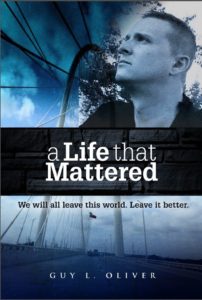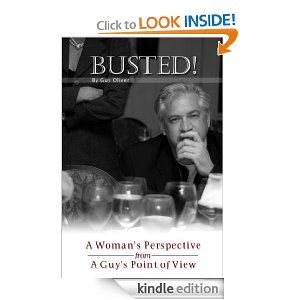“You can judge a society by how well it treats its prisoners.”
– Fyodor Dostoevsky
Dear Dad,
How are you, pops? I’m writing because I talked to Vanessa and she said you called and asked about me. You and I have talked since then but I wanted to update you on my situation.
February 11 I will sign on to whatever the judge and DA will offer; I’m told 10 years. I can’t believe what I’ve done, but I’m ready to accept whatever sentence I’m given. 30 to 45 days later I’ll be taken to a transfer unit, then to Huntsville and from there no telling where. I’ve discovered that Texas has countless prisons and I am one of its countless prisoners…
So began one of several letters from my son during his time in prison and this particular text was a welcome change in his approach to his situation.
He did not so easily accept his fate in the beginning. Initially, he made historical references to the infamously harsh sentences of Judge Roy Bean, feeling a sense of injustice at the prospect of a decade in prison. The adjustment to life in prison, something I have a hard time imagining, must surely take a toll on a person’s soul—but he did himself no favor by initially refusing to take responsibility for his actions. He did not consider the path that led him there.
Instead, he first clung to his sense of entitlement induced by years of programming, the foundation of which was not being held accountable.
And there can be no redemption without accountability.
Accountability is the life blood of redemption. God will forgive your transgressions. Man will forgive your transgressions. Even your enemies will often forgive your transgressions if you can only bring yourself to acknowledge them and to accept that the offending actions were yours and that no one else is to blame. This simple truth is so well known to us as adults but is also often overlooked.
I watch as my daughters correct their sons. I hear them say the words every mother says to her child who misbehaves:
“You hurt her; we mustn’t hit others. Say you’re sorry for hurting her.”
“That belongs to him; we mustn’t take what isn’t ours. Tell him you’re sorry for taking it.”
“You made her cry. We mustn’t say things that hurt other people’s feelings. Tell her you’re sorry for not being kind.”
From the moment most of us are able to walk and talk, we are taught to be kind, to respect others, to shun violence—and Tim was no different. As sensitive and sweet and emotionally in tune with others as he was, he too required correction. And then came a time when consequences seemed to matter less than what he wanted in the moment.
As a result, the apathy begat maternal fatigue, compounded by a father missing from the home, resulting in a permissive home life that fomented a sense that forgiveness would be ever present without the requirement of repentance.
During his first serious run-in with the law, as I recall, his mother hired an attorney and the lesson learned was predictable. That he was above the law—a view consistent with his past experience. A reinforced sense that rules of life and society did not apply to him.
I previously wrote with terrible remorse my recollection of turning away from my son when I could no longer reach him. Here I must be equally candid and explain that at the time he was tried and sentenced, he had long since turned away from any sense of social obligation. In so many ways he turned his back on his family, on his friends, on everyone he knew who would not feed his addiction. To us all he said without reservation
“I choose this over you.”
Only to return to us upon his realization of consequences asserting themselves. Both in the acquiescence to addiction and the frantic return to family in the face of terrifying consequences, it was as though he was crying out to be stopped. He seemed to be begging for someone to do for him what he was incapable of doing for himself.
And the dance thus continued, as he swayed from the addiction that seduced him, to the repentance that called to him and back again. Over and over.
Then, finally came the day of reckoning, on which the last person loyal to him turned away. Someone who loved him more than any of us could: his mother. His final refuge, she withdrew her hand and let him go.
It was an act of courage on her part that was, in so many ways, unfathomable to me knowing what I know of her even today, for her to finally say the word his soul had been craving:
“No.”
For the first time in my recollection, she stood by, refusing his pleas for help and allowed fate to take its course, refusing to hire counsel to act as his advocate. For the first time in his life, he had no advocate. He stood before a Texas judge, figuratively naked with only an apathetic attorney to cover him—an attorney appointed by a court system bent on convicting him.
And she looked on, refusing to step in.
I frequently wonder what the experience was like for her. How heartbreaking it must have been to finally say the word she should have uttered so many times before but couldn’t.
“No.”
A mother’s love is so powerful, so compelling of action to protect her child, that to be able to deny that drive must have been difficult in a way that I, as a father, cannot understand any more than I understand her former permissiveness. What I’m sure she couldn’t understand at the time, what none of us truly understood, is that in this action she, herself, had planted the seed of redemption in our son.
After months of awaiting the pronouncement of his sentence, without the influence of drugs and the deprivation of any support system, an inevitable sense of his actions began to materialize within him. He began to understand that a worthwhile life cannot be lived in the haze of drugs and alcohol, nor being at the beck and call of substance abuse.
He began to see the toll of his sloth, his theft, and his abuse. He finally began to understand that he had allowed himself to become a conduit of harm to others under the influence of chemicals he had adopted as family.
The seed of redemption thus planted, he nurtured and watered it, enabling it to take root and, little by little, the fresh sprig of life grew, finally breaking through the hardened top soil of his consciousness. We began to see it just a little at a time, glimpses here and there.
As I watched, I waited with bated breath, hoping and praying that this was not an illusion…


